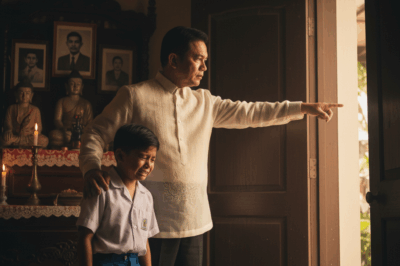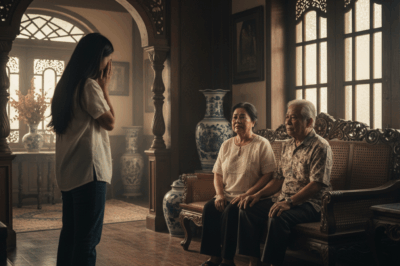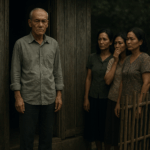The Legacy and the Law: Who Inherits the Riches of Music Icon Freddie Aguilar?

MANILA, Philippines – The recent passing of Original Pilipino Music (OPM) legend Freddie Aguilar on May 27, 2025, at the age of 72, has not only plunged the nation into mourning but has also brought to the forefront a critical question: what happens to the considerable wealth and intellectual property accumulated by the “Anak” hitmaker? With a storied career spanning decades, multiple marriages, and a beloved final partner, the distribution of Aguilar’s estate is a topic of intense public curiosity and legal scrutiny.
Freddie Aguilar, a musical titan whose songs transcended borders and generations, was survived by his wife, Jovie Albao, and his children. His enduring marriage to Albao, solemnized under Islamic rites in 2013 after his conversion to Islam, was a significant chapter in his later life, marked by public attention due to their considerable age difference. However, it’s widely known that Aguilar also had four children from a previous marriage – Maegan, Jonan, Isabella, and Jeriko – and a total of six children from three different women throughout his lifetime. This complex family structure immediately raises questions about how his assets will be divided according to Philippine law.
Understanding Philippine Inheritance Law: Beyond Just the Spouse
In the Philippines, the distribution of a deceased person’s estate is governed primarily by the Civil Code of the Philippines. This legal framework is designed to ensure that certain individuals, known as “compulsory heirs,” receive a guaranteed share of the inheritance, regardless of whether a last will and testament exists. This guaranteed portion is called the “legitime.”
For an estate like Freddie Aguilar’s, where there are both legitimate children and a surviving spouse, the law provides clear guidelines:
Legitimate Children: Aguilar’s legitimate children are considered primary compulsory heirs. Under Philippine law, they are generally entitled to equal shares of a significant portion of the estate.
Surviving Spouse: The surviving spouse, Jovie Albao, is also a compulsory heir. Her share in the inheritance is generally equal to that of one legitimate child.
Illegitimate Children: If Freddie Aguilar had other children recognized as illegitimate, they are also compulsory heirs. Their share is typically half of what a legitimate child receives.
This means that the notion of “all” of Freddie Aguilar’s wealth automatically going to his current wife, Jovie Albao, is incorrect under Philippine law. His children, as compulsory heirs, are legally entitled to their respective portions of his estate.
The Role of a Will: A Guiding Hand, Not Absolute Control
While Freddie Aguilar may have left behind a last will and testament, it’s crucial to understand that even a will does not grant absolute control over the entire estate. Philippine law, with its concept of the “legitime,” ensures that compulsory heirs are protected.
If a will exists, it would primarily direct the distribution of the “free portion” of the estate – that part which is not reserved for the compulsory heirs. For example, if the legitimates of the compulsory heirs amount to half of the estate, then only the remaining half (the free portion) can be freely disposed of by the testator through a will. This allows the deceased to allocate specific assets, make bequests to non-compulsory heirs, or even charitable donations, but only from this free portion.
Without a will, the estate would be distributed purely through intestate succession, following the specific rules laid out in the Civil Code for heirs. In such a scenario, the law dictates the precise proportions each compulsory heir receives.
The Complexities of Freddie Aguilar’s Family
Freddie Aguilar’s personal life, particularly his multiple relationships and children from different women, adds layers of complexity to the inheritance process. The distinction between “legitimate” and “illegitimate” children, as defined by Philippine family law, will be critical in determining their exact shares. While all his recognized children are considered heirs, their specific portions can vary based on their legal status.
Furthermore, the intellectual property rights to his iconic songs, most notably “Anak,” represent a significant component of his estate. These rights, which generate royalties and other income streams, will also be subject to the same inheritance laws as his other tangible and intangible assets.
Navigating the Future of Ka Freddie’s Legacy
As the nation mourns the loss of a musical titan, the legal processes surrounding his estate will undoubtedly commence. This will involve identifying all heirs, inventorying assets, settling any outstanding debts, and finally, distributing the inheritance according to the law and, if it exists, his last will and testament.
For Jovie Albao, as the surviving spouse, and for all of Freddie Aguilar’s children, this period marks not only a time of profound grief but also of navigating the legal complexities of his legacy. While the specifics of his estate and any potential will remain private matters for the family, it’s clear that his vast contributions to Filipino culture will not solely benefit one individual. Instead, his material legacy, much like his timeless music, will be shared among those closest to him, as prescribed by the laws of the land he so passionately celebrated in his songs.
What do you think about the legal framework governing inheritance in cases with diverse family structures like Freddie Aguilar’s?
News
Namatay ang aking asawa at pinalayas ko ang kanyang anak sa bahay, “pinakawalan siya kung saan niya gusto” ngunit makalipas ang 10 taon ay nabunyag ang masakit na katotohanan…
Nang mamatay ang aking asawa, pinalayas ko ang kanyang stepchild palabas ng bahay, “pumunta ka kahit saan mo gusto”, ngunit…
Nagpakasal ang anak na babae. Sa loob ng 19 na taon ay hindi siya umuuwi. Tahimik na bumisita ang mga magulang. Sa hindi inaasahang pagkakataon, pagbukas nila ng pinto ay napaiyak sila sa takot.
In a small baryo in Ilocos Norte, one would often see Mang Ramon and Aling Rosa sitting on the porch…
Nawala ang anak na babae habang naglalakbay, makalipas ang 8 taon nakita ni nanay ang tattoo ng anak na babae sa braso ng isang lalaki. Ang katotohanan sa likod ng gulat na ina.
Isang hapon noong unang bahagi ng Hulyo, ang dalampasigan ng Urbiztondo – San Juan, La Union ay puno ng mga…
Tumangging bumangon sa kama ang 6 na buwang buntis na asawa, kahina-hinalang itinaas ng asawa ang kumot at nanginginig ang eksena sa harap ng kanyang mga mata…
Tatlong taon nang kasal sina Miguel at Hanna bago nila natanggap ang magandang balita. Mula nang malaman ni Miguel na…
Sa edad na 36, nagpakasal ako sa isang pulubi na babae na kalaunan ay nanganak sa akin ng dalawang anak – hanggang sa isang araw, tatlong marangyang kotse ang dumating at ibinunyag ang kanyang tunay na pagkatao, na nag-iwan sa buong nayon sa pagkabigla…
Nang mag-36 anyos ako, madalas na bumubulong ang mga kapitbahay: “Sa edad na iyon, hindi pa rin kasal? Mananatili siyang…
SHOCKING SCANDAL! Carmina Villarroel was reportedly RUSHED to the hospital after being kicked out by Zoren Legaspi. The truth behind this explosive fight will leave fans in total disbelief…
🔥 CARMINA VILLARROEL RUSHED TO THE HOSPITAL AFTER ZOREN LEGASPI ALLEGEDLY THREW HER OUT! 😱💔 A Scandal That Shook Showbiz…
End of content
No more pages to load












